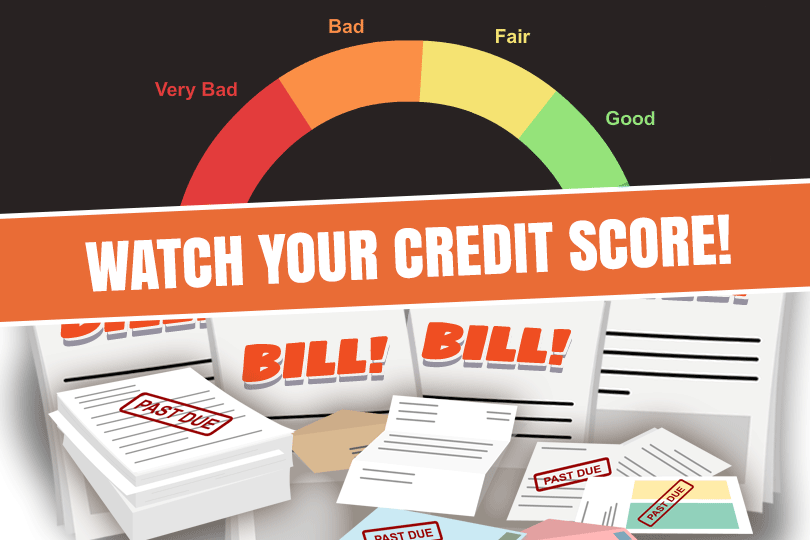What Your Credit Score Says About You
August 23, 2022
What is a Good Credit Score?
Think of your credit score like grades you get in school. A higher grade means that the work you turned in was on time and of higher quality. It measures your academic performance. Your credit score measures your creditworthiness, and you are graded bases on a number of factors, and credit bureaus calculate it on a scale between the range of 300 to 850.
The higher this score is, the more lenders will trust you. A high score represents a borrower who makes repays loans and makes his payments on time, making you less of a risk in the eyes of lenders, giving them more incentive to grant you credit with a lower interest rate.
What Goes into Your Credit Score?
One of the main credit scoring formulas used in the U.S. is the FICO score. All major credit bureaus in the U.S.—Equifax, Experian, and TransUnion—calculate credit scores using FICO's algorithm and information they have collected about people's credit history. It is based on five factors: timely payments (35%), total debt (30%), the age of credit (15%), new credit (10%), and the type of debt (10%). Let’s talk about each of the aspects.
Timely Payments: The first factor is easy enough to understand; to be considered creditworthy, you need to make payments on your loans on time. This can mean making your mortgage payment on time, and even your credit card balance.
Total Debt: Your total debt, which affects 30% of your score, is the amount of money you owe, relative to your credit limits. The more you owe, the riskier it is for you to take on new debt, lowering your credit score.
Age of Credit: Having a longer, more established credit history is advantageous because it gives lenders more information about your spending habits. A longer history of reliable borrowing means your score will be higher.
New Credit: This refers to lines of open credit. If a borrower has opened a number of new credit lines in a short amount of time, it indicates to lenders that they are having financial trouble and cannot manage their money well.
Type of Credit: This is especially helpful for new borrowers who don’t have a long credit history. It helps to have different types of credit lines because it shows lenders that you are able to handle various finances.
While it is good to know what goes into your score, you also need to know what doesn't affect your credit rating. While credit applications can affect the score, "soft" credit checks do not. The score is not based on sex, race, marital status, religion, nationality, or age. Information about where you live, your job, salary, or the interest rates on your credit accounts is not factored into the score either.
------------------------------
RELATED VIDEOS:
You're Almost There When You Get Your Loan Approval
Learn About the Mortgage Insurance Premium (MIP)
Pre-approval Starts the Mortgage Process

FHA Loan Articles
February 12, 2024When you are approved for an FHA One-Time Close Construction loan, you get a single loan that pays for both the costs to build the house, and serves as the mortgage. One application, one approval process, and one closing date.
November 22, 2023In the last days of November 2023, mortgage loan rates flirted with the 8% range but have since backed away, showing small but continued improvement. What does this mean for house hunters considering their options to become homeowners soon?
November 4, 2023In May 2023, USA Today published some facts and figures about the state of the housing market in America. If you are weighing your options for an FHA mortgage and trying to decide if it’s cheaper to buy or rent, your zip code may have a lot to do with the answers you get.
October 14, 2023FHA loan limits serve as a crucial mechanism to balance financial sustainability, regional variations in housing costs, and the agency's mission to promote homeownership, particularly for those with limited financial resources.
September 25, 2023Mortgage rates are hitting prospective homeowners hard this year and are approaching 8%, a rate that didn't seem very likely last winter. With so many people priced out of the market by the combination of high rates and a dwindling supply of homes.







